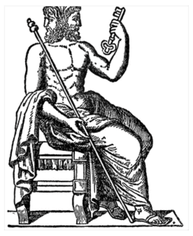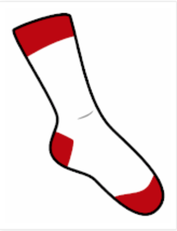 Though William Shakespeare often gets credit for coining the word tosspot, its first recorded use was in 1568, when Shakespeare was a mere four years old. The word means a lush, a drunkard or fool & hearkens back to the day when folk drank their ale or mead from pots. It seems a tosspot tossed back his or her pot, and was known for doing so a little too often. A more delicious usage of tosspot is discussed in the comments section of Anu Garg’s amazing AWAD (A Word A Day) listserv, in which Gregory M. Harris mentions the phenomenon of the tosspot word. Tosspot words are compound words built of a verb, then a noun, in that order. Some examples include: breakfast campsite driveway flyway killjoy playhouse rattletrap repairman scarecrow sharecropper skateboard telltale turncoat waitstaff washcloth watchdog watchtower Big thanks to Gregory M. Harris who made the AWAD comment that got me interested in this phenomenon & inspired some happy pondering. In the comments section, please propose other tosspot words to lengthen the list, or argue for why a word on the list doesn’t belong there, or... My thanks go out to this week’s sources: the OED, Librarian’s Muse, Etymonline. Sign Specialist, & A Word A Day
2 Comments
 What’s Etymosheeple, you ask? It’s explained here. After our last exciting round of Etymosheeple, ending on the word adolescent Rachel6 of Sesquipedalian Dreamer contacted me, noting that she’s always associated the words adolescent & nascent, so nascent will be our next stop this round (thanks, Rachel6). Nascent arrived in English in 1620 from the Latin word nascentum, meaning immature, arising, or young. Nascentum comes from the Latin word nasci, or to be born. What other words also come from nasci? A smoking heap of them. Obvious ones associated with birth include: natal (late 1300s) neonatal (1883) Renaissance (1840s – I would’ve guessed earlier) Not-so-obvious ones include: cognate, meaning of common descent. Though the words springing from nasci in this list are broadly related cognates, cognates are typically more closely related (like the French nuit, German nacht & English night). But wait, there are more... nee, as in Jacqueline Kennedy, nee Onassis) innate, as in innate talents Noel, as in Christmas native, nation & nature And my favorite of the bunch, puny, which entered English in the 1570s, meaning inferior in rank, from the Middle French word, puisné, which came from Latin that I’ll simplify as post-nasci, meaning after being born. Thinking Etymosheepishly, the word puny leads me to wonder about other words meaning small (teeny, tiny, teensy), & whether they owe their –y endings to nasci, (as puny does) or to the more traditional diminutive –y ending we find in puppy orbaby. And the answer is….maybe. It turns out both teensy (1899) & teeny (1825) are alternative forms of tiny (1400), which appears to have come from the word tine, (as in the tines of a fork), and may have been formed by adding the diminutive-making –y to the word tine, but nobody knows for sure. Thanks for joining me for this particularly directionless round of Etymosheeple. This week in the comments section, I’d love to see words with unlikely spellings. Mention one, mention two, mention a dozen… My thanks go out to this week’s sources: the OED, Wordnik, & Etymonline.  Anagrams are the sort of sick fascination we word nerds embrace. For those who haven’t previously played with anagrams, an anagram can be made by using all the letters in a given word, phrase or sentence & re-arranging them into something new. For instance, here are two anagrams of Rudolph the Red-Nosed Reindeer: Deep northern lurid horse deed Horror: deep tennis hurdle deed Below please find some anagrams. Each group can be translated into a phrase we’re likely to hear this time of year. Festive Anagram 1 Ahoy, hippy lads Holy yap aphids Ashy hippo lady Soy aphid phyla Popish lady hay Aphid hay ploys Festive Anagram 2 Hydro jot towel Jowly red tooth Jetworthy lode Do lower thy jot Drooly Jethwo Throw, pot, yodel Festive Anagram 3 Reenact a hope Prehost a cone A coherent ape Create a phone A threep canoe Please translate the three festive anagrams into their original forms & leave your translations in the comments section, OR play around with a festive anagram of your own & enter your list of translations in the comments section for others to ponder (old schoolers prefer to create anagrams with pen, pencil & grey matter, however this online anagram tool is speedier. My thanks go out to this week’s source: Andy’s Anagram Solver  Don’t you love those words that can mean exactly the opposite of what they mean? They’ve been called many names over the years, though none of those names have really stuck: contranyms, antilogies, eniantodromes, and Janus words. I’m fond of that final one, which refers to the two-faced Roman god of transitions, Janus. A few of my favorite Janus words: Fast: either something can hold fast, or it can move fast. Strike: either I can strike the ball or miss the ball & strike out. Garnish: either a garnish is something added, like parsley on one’s dinner plate, or something subtracted, as in garnished wages. Citation: I can receive a citation of merit for some good deed, or a traffic citation for a deed of vehicular repute. Bill: either one receives a bill for what one owes, or one can be paid in bills when one is owed. Host: I can be helpful by hosting a website or hosting a party, or I can cross to the dark side and host a disease. Oversight: I can be in charge of the oversight of employees, or I can ignore my responsibilities & be guilty of oversight. Swipe: I can do what the society honors and swipe my credit card, or I can do what society abhors & swipe something off the shelf. Dear followers, what other Janus words would you add to the list? My thanks go out to this week’s sources the OED, Fun With Words &Etymonline, Janus image source  As the holiday season approaches, it’s likely we’ll all soon be enjoying some beverages. So, here’s to all that: Sip comes from a Low German word, sippen, meaning to sip. It entered English as supan in the 1400s. Gulp also entered the language in the 1400s & appears to be onomatopoeic, meaning to gush, pour forth, guzzle or swallow. Gulp most likely came from the Flemish word gulpe, which meant stream of water or large draught. Slurp is most likely another onomatopoeic word. It came from the Dutch word slurpen & entered English in its verb form in the 1640s, but took until 1949 to become a noun. Glug is also onomatopoeic & showed up in the language in 1768 from some unspecified source. Slug was first recorded meaning take a drink in 1756. It may have come from the Irish word slog, to swallow, or from a colorful English idiom meaning to take a drink, to take a slug. In the 1540s, the noun swig meant a big or hearty drink of liquor. A century later, swig graduated into use as a verb. By 1889, the idiom to take a snort entered English, meaning to have a drink of liquor, especially whiskey. Whether you’re gulping, slurping, demurely sipping or letting down your hair & taking a snort, may the season's liquid refreshments bring you joy. Oh, & please feel free to leave a comment. My thanks go out to this week’s sources the OED, Wordnik, Merriam Webster, & Etymonline,  We use them every day, but do we appreciate their etymologies? Hopefully this entry will help. The word spoon originated in Proto-Germanic as spaenuz, which initially referred to a wooden chip or shaving. It entered Old English as spon. By the 1300s, spon began to mean wooden spoon, though its German cousin (also spelled spon), meant cooking spatula. Fork came to the language before the 1300s in the form of forca, & meant a forked instrument used by torturers. This word came from the Latin word, furca, which meant both pitchfork, & fork used in cooking. Since English folk didn’t start eating with forks until the 1400s, the English apparently found unsavory things to do with forks. Knife has a somewhat two-pronged entry into English (har har). Knife may have entered Old English as cnif from the Old Norse word, cnifr, which came from the Old German word knibaz. These words all referred to some sort of blade. The Dutch word knijp, German, kneip, or French canif, all referring to a small blade like a penknife, may have also spawned the English word, knife. Hardworking linguists are still puzzling over which came first, the knife or the, well, the knife. Here are some utensil-inspired idioms: 1610 spoonfeed 1711 jack-knife 1799 spoon (meaning simpleton) 1801 to be born with a silver spoon in one’s mouth 1831 fork up / fork out / fork over I’ve intentionally left out several utensil-inspired idioms in hopes that you might suggest some in the comments section. After all, I wouldn’t want to spoonfeed you. My thanks go out to this week’s sources the OED, Wordnik,, Etymonline, Awesome has not always been cool waves, stunning sunsets & killer concerts. Its root, awe, started out on the dark side.
Awe came from the Proto-Indo-European word agh-es, which grew into the Gothic word agis, fear or anguish, & its German cousin agiso, fright or terror. Awe entered Old English as ege, simply meaning fear. By the 1300s it had become aghe. Three centuries later, the gents who pulled together the King James Bible used awe to mean fear mixed with veneration, & it is those gents we can thank for awesome’s positive makeover. Kevin Lawver, founder of Day of Awesmoness, tells us “People are awesome every day, but they frequently don't realize it, and their feats of awesomeness are rarely recognized.” Join in on the fun. Go out into the world & be awesome. But before you engage in your own brand of awesomnosity, please visit the comment section, & indulge me by explaining one positive action you’ll take this week to increase the general level of awesomeness in the world. My thanks go out to this week’s sources the OED, Wordnik,, Etymonline, & Day of Awesomeness  I’ve always had a somewhat twisted fondness for author, poet & critic, Dorothy Parker (1893-1967). Generally, I try to see the silver lining, take the high road, and all that. However, when it comes to searingly mean wit of Dorothy Parker, I throw silver linings & half-full glasses to the winds & revel in her wickedness. Below are some of my favorite Dorothy Parkerisms. “The first thing I do in the morning is brush my teeth and sharpen my tongue.” “This is not a novel to be tossed aside lightly. It should be thrown with great force.” “Beauty is only skin deep, but ugly goes clean to the bone.” “She runs the gamut of emotions from A to B.” “If you want to know what God thinks of money, just look at the people he gave it to.” “By the time you swear you're his, Shivering and sighing. And he vows his passion is, Infinite, undying. Lady make note of this -- One of you is lying.” “That woman speaks eighteen languages, and can't say 'No' in any of them.” “If all the girls attending [the Yale prom] were laid end to end, I wouldn't be at all surprised.” “That would be a good thing for them to cut on my tombstone: Wherever she went, including here, it was against her better judgment.” She’s the best (or would that be the worst?) I hope you’ll leave a comment or three. My thanks go out to this week’s sources Women’s History, GoodReads & DorothyParker.com The Sanskrit word smarati, or remember, is the grandmother of many words. Here are a few.
The word memory came to English in the 1300s, from the French word memoire, which came from the Latin word memoria, all meaning pretty much the same thing. And memoria came about after the Sanskrit word, smarati made its convoluted way across a continent, through Proto-Indo-European, losing its last two syllables, shifting a vowel from a to e, to become smer, then losing its initial consonant to become mer. It’s pretty easy to see the resemblance between memory, memoir & remember, but smarati also managed to be the impetus for the word mourn, which - through early Germanic languages - meant to remember sorrowfully. Though not all etymologists agree, it’s very likely smarati is the unlikely root for tirade. It seems tirade, which appeared in English in the early 1800s, from French, initially meant a volley of words, which comes from the Old French, martirer, to endure martyrdom. Isn’t it delicious that putting up with a verbal tirade is etymologically equated with being burned at the stake? Of course, the word martyr also originated with the Sanskrit smarati, as did the even more unlikely word, retire. It seems reasonable that retire would have something to do with being tired, however, there appears to be no etymological support for that. Instead, retire entered English in the 1530s as a military term, to withdraw to some place for the sake of seclusion, which came from the Old French tirer, which has its roots in that wonderful grandmother of a Sanskrit word, smarati, who, let’s hope – after all that good work – has finally withdrawn somewhere for the sake of seclusion. Followers – have any of you felt martyred to someone’s tirade? Do any of you take heart that the root of mourn is more fundamentally about remembering than it is about sadness? Any other thoughts about smarati & its offspring? My thanks go out to this week’s sources Merriam Webster, the OED & Etymonline  How is it that getting socked can be such a bad thing, but getting socks can be pretty great (as long as Aunt Tildy didn’t pick them out). The verb of the violent nature showed up in English in 1700, meaning to beat or hit. Nobody seems to know its source, but 1700s documents are rife with the word. By 1877 the term sock it to someone had caught on, which appears to be the beginnings of the 1970s phrase, sock it to me. The socks we wear on our feet entered Old English from Latin through Germanic languages. In Old English a socc was a light slipper. Though medieval royalty wore woven silk socks, it wasn’t until the 1400s when William Lee invented the knitting machine that knitted socks worn inside of shoes became popular for the less-than-royal. Socks figure highly in any number of idioms & terms: Bless his/her cotton socks (1800s) To knock the socks off someone (1845) To stuff a sock in it / put a sock in it (1919) (though not proven, some believe this idiom came about because there were no volume controls on early Victrolas) The windsock (1929) To be socked in (1940s) To sock money away (1942) The sock hop (1950) Also, in 1830 some unrecognized American combined sock with the essence of finality suggested by a doxology, creating the word sockdology, a decisive & final blow. Ironically, the word sockdolagising, from Tom Taylor’s play, Our American Cousin may have been one of the last words heard by Abraham Lincoln. Just as the line was spoken, Booth’s shot rang out. A decisive & final blow indeed. Dear followers, are there any of these idioms you hadn’t previously heard? Any thoughts about socks, whether Aunt Tildy chose them out or not? My thanks go out to this week’s sources the OED, Phrase Finder, The Lonely Sock, Sima Lixia, & Etymonline |
I write for teens & tweens, bake bread, play music, and ponder the wonder of words in a foggy little town on California's central coast.
To receive weekly reminders of new Wordmonger posts, click on "Contact" & send me your email address. Archives
November 2023
|


 RSS Feed
RSS Feed